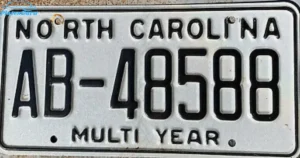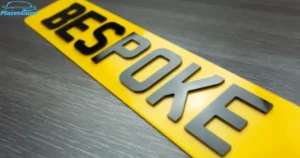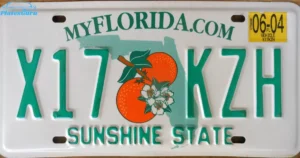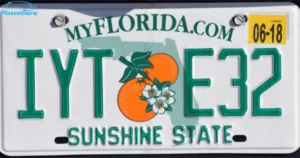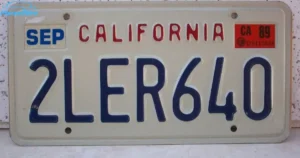Yes, most trailers need a license plate if they are being towed on public roads. The requirements for a trailer license plate vary by state, but generally, any trailer used on public roads must have one. It’s important to check with your local Department of Motor Vehicles (DMV) to understand the specific requirements in your area.
Understanding the Keyword: Trailer License Plate Requirements
To fully grasp the essence of our query, “Does my trailer need a license plate?”, it’s imperative to decode the terminology and context within which it operates. A “trailer” refers to any non-motorized vehicle towed by a motorized vehicle. It can range from small utility trailers used for hauling junk to the dump, to large recreational vehicles (RVs) that carry the comforts of home on the road.
The common denominator is that trailers are designed to carry goods, equipment, or living quarters from one place to another. The term “license plate” signifies a metal or plastic plate attached to a vehicle or trailer for official identification. For trailers, this plate acts as a legal acknowledgment from the governing authorities that the trailer has been registered according to the state or country’s specific regulations while also serving as a safeguard to keep sublimation license plates from fading over time.
Why the Focus on License Plates for Trailers?
License plates on trailers are not merely for aesthetic or identification purposes; they serve several critical functions:
- Legal Compliance: In most jurisdictions, having a license plate on a trailer is a legal requirement for public road operations. It signifies that the trailer has been duly registered and meets the necessary safety and environmental standards set by the authorities.
- Safety and Security: License plates allow for the easier identification of trailers, which is crucial in theft, accidents, or abandonment.
- Tax and Revenue: The registration process often involves paying a fee, contributing to the state’s revenue. This money can be reinvested into road maintenance and safety programs.
Varied Requirements Across Jurisdictions
It’s important to note that the requirement for a trailer to have a license plate is not uniform across all jurisdictions. Different states and countries have varied regulations based on:
- Trailer Type: The specific use of the trailer (commercial, recreational, utility) can affect the requirement for a license plate.
- Weight and Size: Many regions base the need for registration and a license plate on the trailer’s weight and size. Smaller trailers below a certain weight threshold may be exempt in some areas.
- Use and Distance: Some laws may vary depending on whether the trailer is used in-state or taken across state lines.
Understanding the Keyword: Trailer License Plate Requirements
To fully grasp the essence of our query, “Does my trailer need a license plate?”, it’s imperative to decode the terminology and the context it operates within. A “trailer” refers to any non-motorized vehicle towed by a motorized vehicle. It can range from small utility trailers used for hauling junk to the dump, to large recreational vehicles (RVs) that carry the comforts of home on the road. The common denominator is that trailers are designed to carry goods, equipment, or living quarters from one place to another.
The term “license plate” signifies a metal or plastic plate attached to a vehicle or trailer for official identification purposes. For trailers, this plate acts as a legal acknowledgment from the governing authorities that the trailer has been registered according to the state or country’s specific regulations.
Why the Focus on License Plates for Trailers?
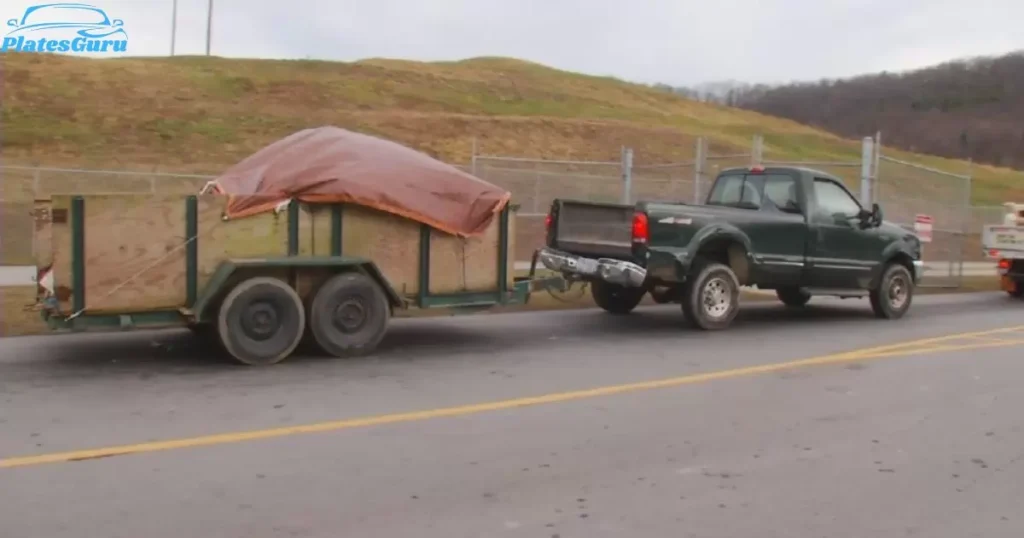
License plates on trailers are not merely for aesthetic or identification purposes; they serve several critical functions:
- Legal Compliance: In most jurisdictions, having a license plate on a trailer is a legal requirement for operating on public roads. It signifies that the trailer has been duly registered and meets the necessary safety and environmental standards set by the authorities.
- Safety and Security: License plates allow for the easier identification of trailers, which is crucial in the event of theft, accidents, or abandonment.
- Tax and Revenue: The registration process often involves the payment of a fee, which contributes to the state’s revenue. This money can be reinvested into road maintenance and safety programs.
Varied Requirements Across Jurisdictions
It’s important to note that the requirement for a trailer to have a license plate is not uniform across all jurisdictions. Different states and countries have varied regulations based on:
- Trailer Type: The specific use of the trailer (commercial, recreational, utility) can affect the requirement for a license plate.
- Weight and Size: Many regions base the need for registration and a license plate on the trailer’s weight and size. Smaller trailers below a certain weight threshold may be exempt in some areas.
- Use and Distance: Some laws may vary depending on whether the trailer is used in-state or taken across state lines.
The Full Story: Securing a License Plate for Your Trailer
Navigating the complexities of trailer registration and the necessity for a license plate involves understanding both the broad strokes and finer details of vehicular law. This section delves into the practical aspects of what you need to know to ensure your trailer is legally compliant and road-ready.
Step-by-Step Guide to Trailer Registration
- Assess Your Trailer’s Requirements: Begin by determining the category your trailer falls into based on its use, weight, and size. This information is critical as it dictates the specific documentation and regulations applicable to your situation.
- Gather Necessary Documentation: Commonly required documents include proof of ownership (such as a bill of sale or manufacturer’s certificate of origin), identification, and, in some cases, proof of insurance. The exact paperwork can vary significantly from one jurisdiction to another.
- Inspection May Be Required: For certain types of trailers, especially those used commercially or those of a significant size, a safety inspection may be necessary to ensure they meet specific safety standards.
- Visit Your Local Department of Motor Vehicles (DMV): With your documents in hand, the next step involves visiting your local DMV or equivalent agency. Here, you will submit your paperwork, pay any applicable fees, and receive your license plate and registration.
- Mount Your License Plate: Once you have your license plate, it must be securely attached to the rear of the trailer in a clearly visible location.
Understanding Local and International Laws
The intricacies of trailer registration do not stop at state or national borders. For those planning to travel internationally or across state lines, additional considerations come into play:
- Reciprocity Agreements: Some regions have agreements that recognize registrations from other areas, simplifying travel and transport.
- Temporary Permits: For short-term use in a different jurisdiction, temporary permits may be available, bypassing the need for full registration.
Special Considerations
- Commercial Trailers: Trailers used for commercial purposes often face stricter regulations, including the need for additional permits and inspections.
- Custom or Homemade Trailers: These unique cases require a thorough inspection to ensure they meet safety standards, and obtaining a license plate may involve additional steps.
Staying Updated and Compliant
Laws and regulations concerning trailer license plates are subject to change. Staying informed through official channels such as state DMV websites, transportation departments, or legal advisories ensures that you remain compliant with the latest requirements.
Key Takeaways
- Compliance is Mandatory: Across jurisdictions, the consensus holds that trailers must meet certain standards to be deemed road-worthy, often symbolized by the possession of a valid license plate.
- Local Laws Govern: The requirement for a license plate varies by location, emphasizing the importance of consulting local regulations to ensure full compliance.
- Preparation is Key: Gathering the correct documents and understanding the process beforehand can streamline your experience with the DMV.
- Safety and Legality Go Hand in Hand: Securing a license plate is part of broader responsibilities that include ensuring your trailer is safe for the roads and that you’re adhering to legal requirements.
Frequently Asked Questions
Can I tow my trailer without a license plate if I’m just moving it a short distance?
Even for short distances, most jurisdictions require a trailer to have a valid license plate or a temporary permit to legally tow it on public roads.
How often do I need to renew my trailer’s registration?
The renewal period varies by state or country but typically ranges from one to several years. Always check with your local DMV for specific renewal requirements.
Are there penalties for not having a license plate on my trailer?
Yes, towing a trailer without a valid license plate can result in fines, penalties, and even impoundment of the trailer in some cases.
What should I do if my trailer’s license plate is lost or stolen?
Report the loss or theft to the police and your local DMV as soon as possible. You will likely need to apply for a replacement plate and may be required to pay a fee.
Conclusion
Navigating the legalities of trailer use on public roads culminates in a clear understanding of the importance of obtaining a license plate. This marker of compliance is not merely a formality but a crucial component of road safety and legal adherence. As we’ve explored, the process involves understanding your trailer’s specific requirements, gathering necessary documentation, and following through with your local Department of Motor Vehicles (DMV) or equivalent authority.




